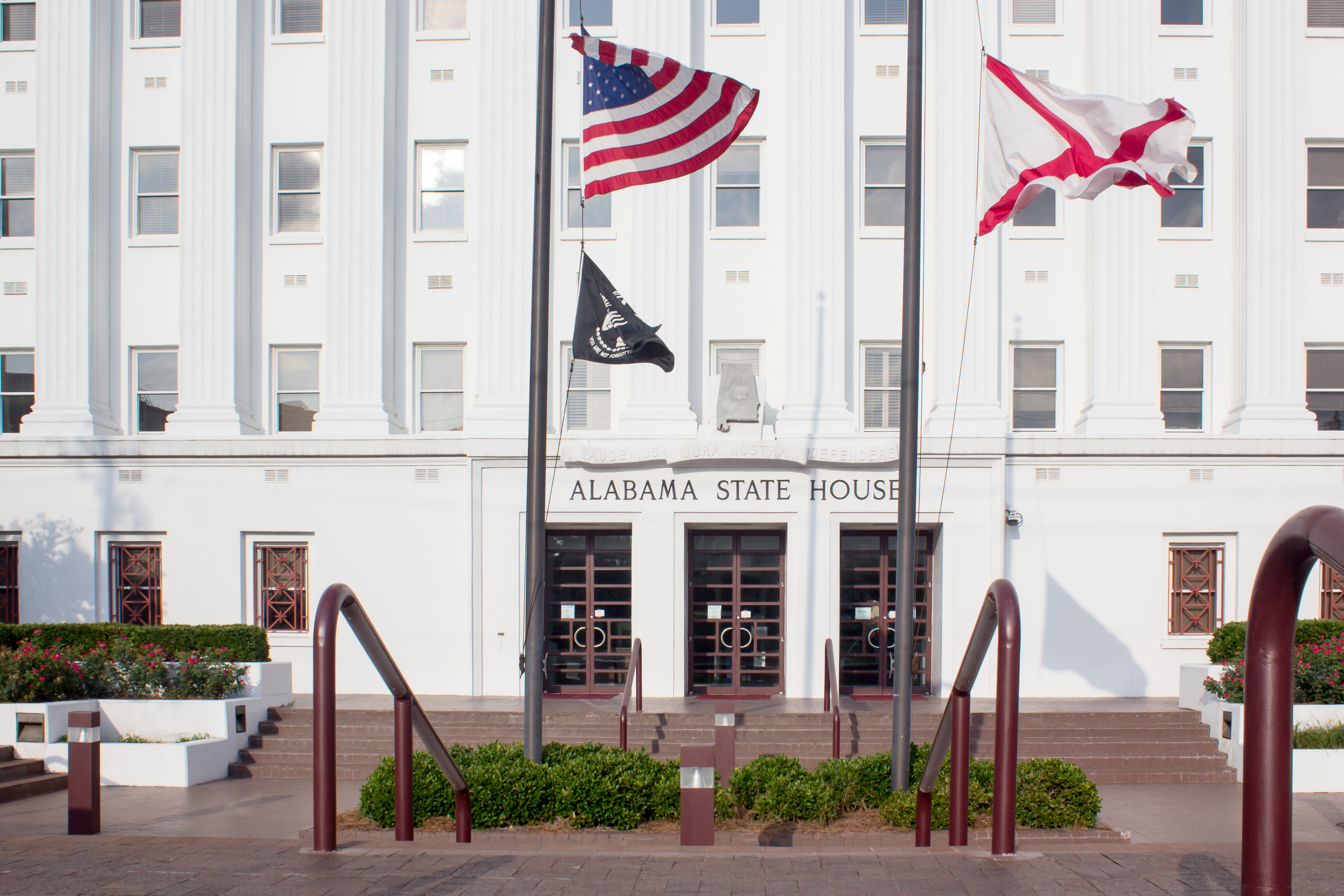With just a month left to go until the first regular session of a new quadrennium, here’s the 16 bills that have been pre-filed so far as lawmakers prepare to return to Montgomery:
HB1 – Establishing mandatory minimums for possession of fentanyl
Rep. Matt Simpson, R-Daphne
HB1 creates mandatory minimum sentences for individuals convicted of possessing amounts of fentanyl that illustrate an intent to distribute. The mandatory minimums would be three years for possession of one to two grams, 10 years for two to four grams, 25 years for four to eight grams and life in prison for more than eight grams. Simpson told APR last month that this is a high priority going into the session.
HB2- Requiring an ignition interlock during diversion program
Rep. Arnold Mooney, R-Pelham
HB2 simply extends the current law requiring an ignition interlock to be installed on an individual’s vehicle for six months or throughout the duration of a pretrial diversion program for someone who has been charged with driving under the influence. The current law is set to sunset on July 1, 2023.
HB3- Prohibiting smoking in car with child
Rep. Rolanda Hollis, D-Birmingham
HB3 would prohibit individuals from smoking in a motor vehicle when a child 14 years of age or younger is present. The bill would be a secondary violation, meaning an officer must lawfully stop the vehicle for another reason before investigating and making this charge. It would be punishable by a fine of up to $100.
HB4- Prohibiting mandatory microchipping of employees
Rep. Prince Chestnut, D-Selma
HB4 would proactively block employers from mandating their employees be microchipped as a mandatory condition of employment. It does not prevent voluntary microchipping. Rep. Prince Chestnut, D-Selma, told APR the bill is in response to one Wisconsin company who had employees voluntarily microchipped primarily to unlock doors and laptops.
HB5- Establishing Alabama Peace Officers’ Memorial Day
Rep. Russell Bedsole, R-Alabaster
HB5 would establish the first Friday in May of each year to be Alabama Peace Officers’ Memorial Day. The national day of observance is May 15. The bill would allow for a memorial ceremony to take place on the south lawn of the State Capitol. Counties and municipalities could decide whether or not to observe the holiday.
HB6- Establishing parental rights as “fundamental rights”
Rep. Kenneth Paschal, R-Pelham
HB6 makes it clear that parental rights are fundamental rights under Alabama law that cannot be taken away without “compelling reason” to do so.
HB7- Banning divisive concepts in certain public settings
Rep. Ed Oliver, R-Dadeville
HB7 lists seven divisive concepts and regulations around how state agencies, local boards of education or public institutions of higher education approach those concepts. This has also been referred to as a CRT bill in line with other bills across the country particularly attacking the teaching of critical race theory, although this bill does not mention the theory. The bill returns in similar form to where it fell short in the past session, after successfully passing through the committee in the House of Representatives.
HB8- Restricting the use of cell phones while operating a motor vehicle
Rep. Randy Wood, R-Anniston
Alabama law currently prohibits individuals from using a wireless communications device to write, send or read a text-based message. HB8 would take that law a step further by also prohibiting drivers from watching, viewing, recording or capturing a photograph while operating the car. The bill would also prohibit drivers from holding a device while driving, even if using voice-based communications.
HB9 & SB1- Reducing correctional time incentives for incarcerated individuals
Rep. Russell Bedsole, R-Alabaster, and Sen. April Weaver, R-
HB9 and SB1 would significantly reduce the amount of correctional incentive time accrued by incarcerated individuals for good behavior while in prison. Currently, Class I prisoners have their sentence reduced by 75 days for every 30 days of good behavior. Class II prisoners get 45 days for every 30 days. Class III prisoners get 20 days for every 30 days. Under the new law, Class I prisoners get 30 days for every 30 days, Class II get 15 days for every 30 days, and Class III get 5 days for every 30 days. Rep. Russell Bedsole, R-Alabaster, told APR that the system in place hasn’t been working correctly.
SB2- Prohibiting inmates from participating in training of tracking dogs
Sen. April Weaver, R-Alabaster
SB2 prohibits incarcerated individuals from participating in any program in which dogs are trained to recognize scents or track humans.
SB3 & SB4- Altering the corporate limits of Bay Minette
Sen. Greg Albritton, R-Bay Minette
Both of these local bills would change the corporate limits of Bay Minette.
SB5- Requiring Board of Pardons and Paroles to establish a women’s residential transition center
Sen. Linda Coleman-Madison, D-Birmingham
SB5 would require the Alabama Board of Pardons and Paroles to establish at least one women’s facility within its scope of establishing and maintaining residential transition centers.
SB6- Regarding local land bank authorities
Sen. Linda Coleman-Madison, D-Birmingham
SB6 would provide a shortened redemption period for a tax delinquent property that is not acquired by an open market bidder at a tax sale auction, would authorize a local government or a local land bank authority to purchase property at public auction by tendering the minimum bid in the absence of open market bids, and would limit the geographical boundaries of local land bank authority acquisitions. This bill would also provide for the creation of multijurisdictional local land bank authorities by intergovernmental agreements and a property tax exemption for a property owned by a local land bank authority.
This bill would further provide for the authorization of local governments to allocate a portion of local property tax revenues to local land bank authorities, a local land bank authority to convey properties to state and local governments for floodplain management and storm water drainage, and for the Governor to create a local land bank authority by executive order following a declaration of a state of emergency.
SB7- Postponement of mandatory supervised release of inmates
Sen. Chris Elliot, R-Mobile
SB7 would postpone until Jan. 31, 2030, the mandatory supervised release of certain inmates. The law mandates that certain incarcerated individuals are leased to mandatory supervision by the Alabama Board of Pardons and Paroles a set amount of time before the completion of their sentence. This bill will delay implementation of that law for nearly seven years.























































